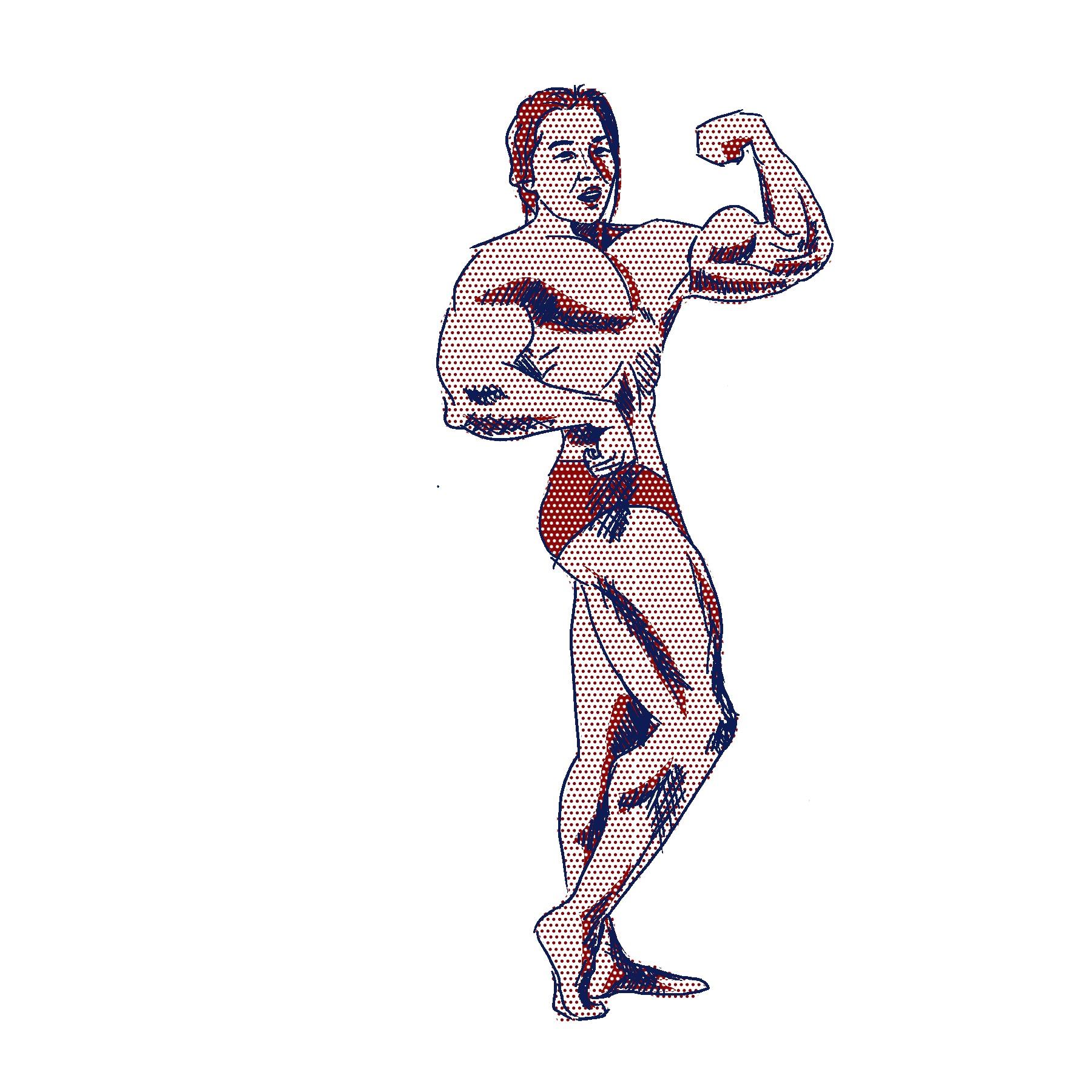
Standing in the cramped changing room of Macy’s, I try on my tenth pair of jeans, hoping against hope, praying, that this pair will fit around my massive, muscled thunder thighs. Everything’s going smoothly until I realize that the pant legs fit perfectly but the waistband swallows me whole. Sigh. Here we go again.
OK, fine, maybe I exaggerated. My legs are muscular, but maybe not quite at the extreme level that I think they are. Still, I shouldn’t feel like my moderately toned legs are this big, and even if they are, I shouldn’t have to feel bad about them. There is no need for me to apologize for how my sport has shaped my body. As an athlete, I am constantly told by my coach that my body can, and should, be muscular — but as a girl, I’m told by my peers that it can’t be too toned; that a little muscle will make me look healthy and “hot,” but too much muscle will turn me into an unfeminine lumberjack. It’s time to put an end to this unwarranted pressure and challenge stereotypes. Fellow female athletes, it’s time to love your muscles, and love how far your body has taken you in your sport, regardless of whether you fit the typical standards of what society calls pretty, hot or thin.
I’ve been swimming since the age of three, and although I didn’t start taking it seriously until middle school, it’s been a constant activity throughout my life. Now, as a varsity athlete, my body itself reflects the physical ways that the sport has shaped me. I don’t have the petite, slim frame that society tells me I should have. Instead, I’ve developed broad and strong shoulders, brawny legs and little to no curves. While genetics may have played a role in this development, when I ask fellow swimmers on the Paly team about this, many of the girls feel that they share these features. In our spare time before and after practices, we carp about our broad shoulders that don’t fit into coats, and our general lack of curves that give us “boyish” figures.
Swimming isn’t an easy sport — and I dare anyone to say any sport is ever easy. To play a sport at a high school level means putting in upwards of seven hours per week and enduring grueling practices. But the double standards abound. People are always told they can obtain their desirable bodies through working out. Women’s magazines bombard readers with hundreds of “slimming” workout for every season. Yet, sports don’t necessarily make you supermodel skinny — they give you a fit body that has muscle. While different sports shape bodies in different ways, female athletes as a whole tend to have larger appendages fitted with muscle that aren’t what society would call “thin.” In fact, the pressure to be slim makes it so that female athletes are more likely to have a negative body image. Twenty percent of elite female athletes have eating disorders, as opposed to the female control group, that had 9 percent, according to the National Association of Anorexia Nervosa and Associated Disorders.
Twenty percent of elite female athletes have eating disorders, as opposed to the female control group, that had 9 percent. National Association of Anorexia Nervosa and Associated Disorders
In the end, it’s the same situation that always plays out: Society has insane double standards, and no one can ever achieve them. We’re told to work out and get skinny, but when we actually work out we get too much muscle. The only way anyone can win is if she ensures she is born with the perfect genes that make sure she doesn’t “bulk up” too much, which is unrealistic for 95 percent of the female population.
As the saying goes, “Damned if you do, damned if you don’t.”
Some days, I wake up feeling gross and insecure. I’ll look at myself in the mirror and hate how “unfeminine” I look. But other days, when I’m able to swim a faster interval during practice, I look down at my legs and shoot them a little note of thanks. Athletes, and everyone else, shouldn’t be subject to hating their bodies just because they don’t fit the typical mold. If anything, we need to thank our bodies for getting us to the level of competition that our sport demands. Having muscles is OK. And until society realizes that, I’ll try on all the pairs of jeans that I need if it means I can keep swimming and doing the activity that I love.




